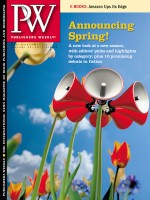With his mother's death the catalyst, Colin Thubron travels To a Mountain in Tibet to one of the holiest Hindu sites.
You describe Tibet as "less a country than a region in the mind," particularly for Western visitors. Do you think it will always have this mystique for Westerners?
Tibet is so remote, so harsh, and its culture so strange to us, that I think the mystique will endure for a long time. But in a sense, the flight of the Dalai Lama in 1959 plucked out the country's heart. No regime is more antithetic to Tibet than the drab materialism of China, whose grip on the country grows ever tighter. Beijing, at best, will aspire to turn the Tibetan religious world into a tourist theme park. It is in the Tibetan diaspora—among the monks who fled to the West—that the mystique may most forcibly endure. But over here this legacy is threatened by the insidious demands of a very different culture: by a focus less on Buddhism's exacting mystical practices than on Buddhism as a therapy.
A Buddhist abbot you met typified the struggles you faced: he focused on "spiritual continuance" while you were "overborne with individual death." Were you ever able to reconcile the two?
I wish I could answer yes to this—it would make a happier narrative. But it wasn't so. After the death of the last of my family, I was travelling to a sacred object—a mountain—in a spirit of pilgrimage, but the mountain was holy only to others and I am agnostic. Nor does the Buddhist hereafter offer much consolation. It promises the endurance of nothing recognizable: no memory, nothing beloved or even individual. Its concern is with karma. So, no, there was no reconciliation, and no profound comfort. There was only the feeling of having marked the passage of my family by making a journey and placing it in this book.
You're no stranger to extended travels in foreign countries. Did your preparation for this trip differ from previous projects?
I'm an avid researcher—it's normally part of the fun. The research on Shadow of the Silk Road, as for many of my books, was much concerned with studying languages. I have wrestled with Russian and Mandarin Chinese for half my life, and both were necessary for the Silk Road. (Russian is still the lingua franca for the older generation in Central Asia.) But for Tibet I drew the line. The language is infernally difficult, and I never attempted it. My research was concentrated on trying to understand Tibetan Buddhism—an arcane and fascinating branch of the faith.
Even though the question of why you chose to climb Mount Kailas is a complex one, did the experience bring you any sense of peace?
Nothing clear-cut. But it did put a space between me and the immediate past, and this seemed necessary to me. It is a wise culture, I think, which supplies rituals for marking bereavement. Our own supplies these very little, and sometimes we have to invent them.



 Volume 258
Issue 04
01/24/2011
Volume 258
Issue 04
01/24/2011





